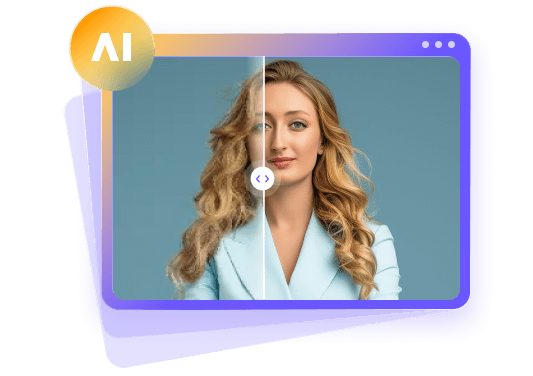How to Make My Lined Image a 3D Model with Free AI Tools
Have you ever drawn something on paper and wished it could appear like a real 3D object? This is no longer a dream. Thanks to artificial intelligence, you can now transform a simple sketch into a detailed three-dimensional model within minutes.
Wondering how? This guide will dive deep into how to make my lined image a 3D model using free AI tools. Besides this, you will learn how these tools work, the best platforms you can try, and step-by-step instructions to bring your flat drawings to life. Additionally, we’ll show you how apps like HitPaw FotorPea can enhance the final output by refining textures and details.
Part 1. Can You Make a Lined Image into a 3D Model?
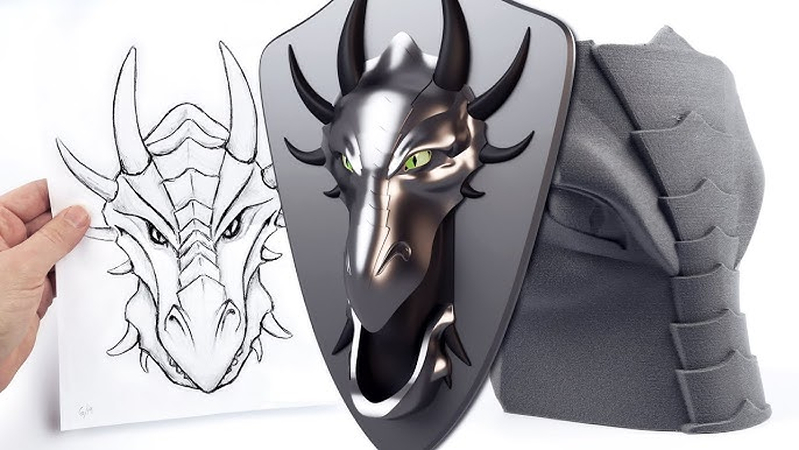
The short answer is yes. You can turn a lined image, such as a sketch or drawing with clear outlines, into a 3D model using AI. But how does it really work?
AI 3D model generators are trained on vast datasets containing shapes, textures, and geometric structures. By analyzing this diverse data set, they recognize patterns, edges, and shapes in two-dimensional drawings. Therefore, when you upload a sketch, the AI scans the lines and interprets their meaning. It then uses this data to add depth, perspective, and structure, essentially “lifting” the drawing off the page.
In simple terms, the AI is like a builder who needs a solid blueprint. Your lined drawing acts as the blueprint, and the AI fills in the missing details to create a 3D form.
Part 2. Best Free Tools to Convert image to a 3D Model
If you’re searching for an image to 3D model as a free online option, you’ll find plenty of choices. However, all the tools come with their own pros and cons. Some tools are better for beginners, while others provide advanced features. Let’s look at a few of the most popular free AI 3D model generator platforms.
1. Meshy.AI
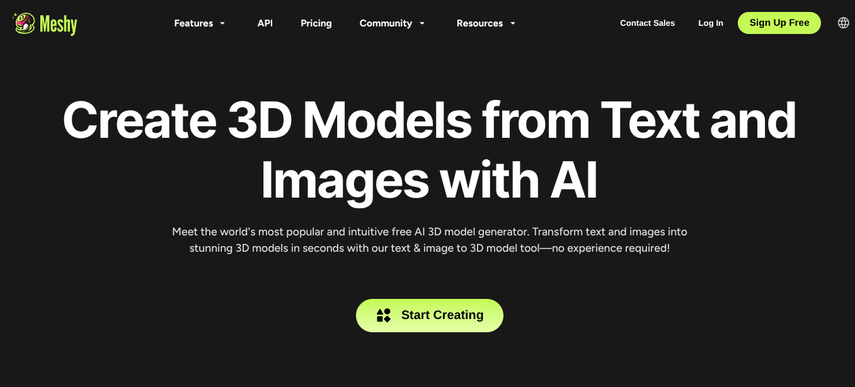
Meshy.ai is one of the popular names in the world of AI 3D modeling. This amazing tool allows you to quickly generate 3D models by simply giving it a text prompt or reference images. Its text-to-3D modeling is designed to streamline the process of concept and prototyping so you can get your 3D models instantly.
Smoothie-3D
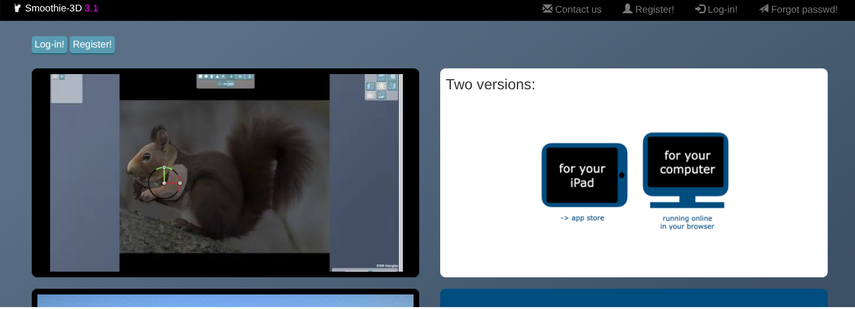
Smoothie-3D is a web-based tool that instantly uploads a 2D image and generates a 3D model. It’s simple to use and doesn’t require advanced knowledge. You can export files in formats like OBJ and STL, which are common in 3D printing.
3. Meshroom
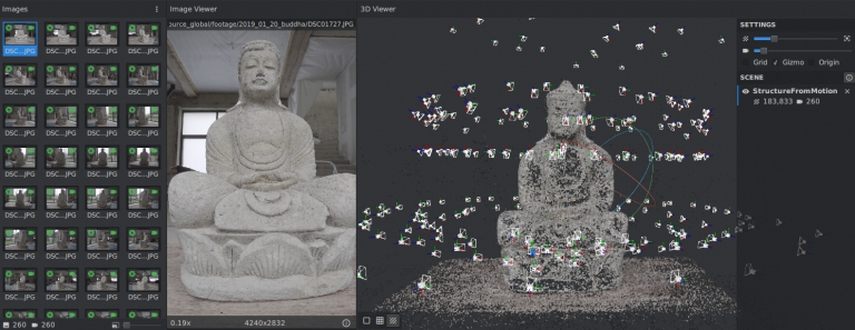
Meshroom is an open-source program powered by photogrammetry. While it’s more advanced than some web tools, it’s free, and you can expect high-quality results. However, it has a steep learning curve for beginners, as its tricky interface might overwhelm you. But once you learn the basics, it opens up endless creative possibilities.
4. Spline AI
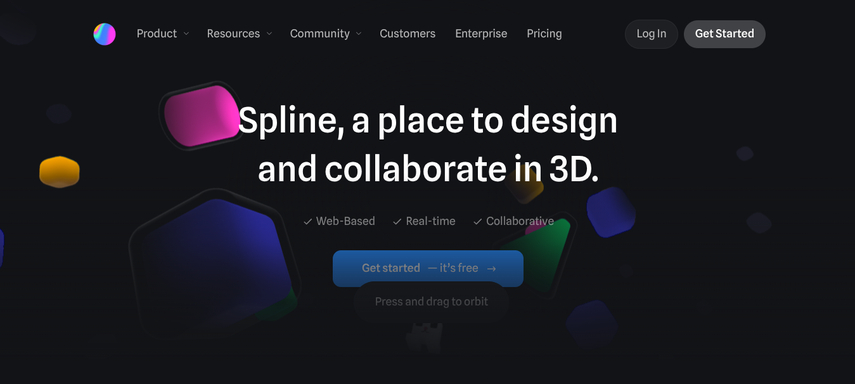
Spline is an online design platform. With its AI integration, you can create 3D models directly from sketches or images. The best part is its user-friendly interface and browser-based access, making it perfect even for beginners.
5. Blender with AI Plugins
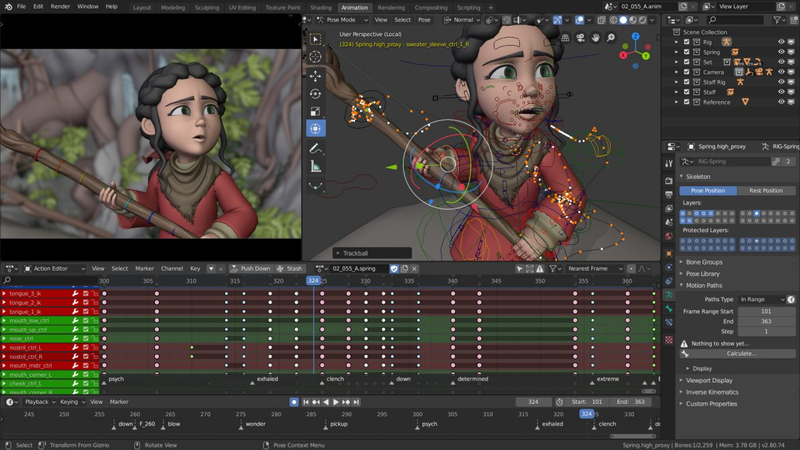
Blender itself is a free and open-source 3D creation software. By adding AI plugins, you can upload lined images and generate 3D structures with ease. The best thing is that you get maximum control with a blender, but it does come with a learning curve.
Part 3. How to Make My Lined Image a 3D Model (Step by Step)
Still wondering how to make my lined image a 3D model? Let’s walk through the process.
Step 1: Upload Your Lined Drawing
First, scan or take a clear photo of your drawing. While taking a photo, make sure the lines are sharp and easily distinguishable. Do not use pictures with shadows or folding paper, as this may confuse AI.
Step 2: Use an Image to 3D Model on the AI Free Platform
Choose a tool like Smoothie-3D, Spline, or Blender with plugins. Upload your image and let the AI process it. Within a few seconds, your drawing will turn into a rough 3D model.
Step 3: Adjust Depth, Lighting, and Textures
Most platforms allow you to tweak the output. You can control how deep the lines should be, how the lighting falls, and whether to apply textures. These adjustments will make your model look more realistic and professional.
Step 4: Export in Common Formats
Once satisfied, export your model to OBJ, STL, or FBX formats. These are widely supported by 3D printers, animation software, and game engines.
By following these steps, you’ll successfully make my lined image a 3D model and have a digital file ready for printing, animation, or further editing.
Part 4. Generate your 3D model using HitPaw FotorPea
While free AI tools are excellent options to turn your lined images into 3D models, the results sometimes need refinement. That’s where HitPaw FotorPea comes in. HitPaw FotorPea is a comprehensive AI-powered image editor that excels at photo generation and enhancement. You can use it to enhance your drawing before uploading it or polish the 3D model afterward. The best part about FotorPea is its advanced AI algorithm and user-friendly interface, which saves your time and ensures that your final 3D output looks polished and professional, even if the raw model was basic.
Wondering how to turn my lined image to 3D model using HitPaw FotorPea? Follow this Step-by-Step Guide
Step 1: Download and Install the App
Go to the official HitPaw website and download the setup file. Once downloaded, open it and follow the on-screen instructions to install the program on your computer.
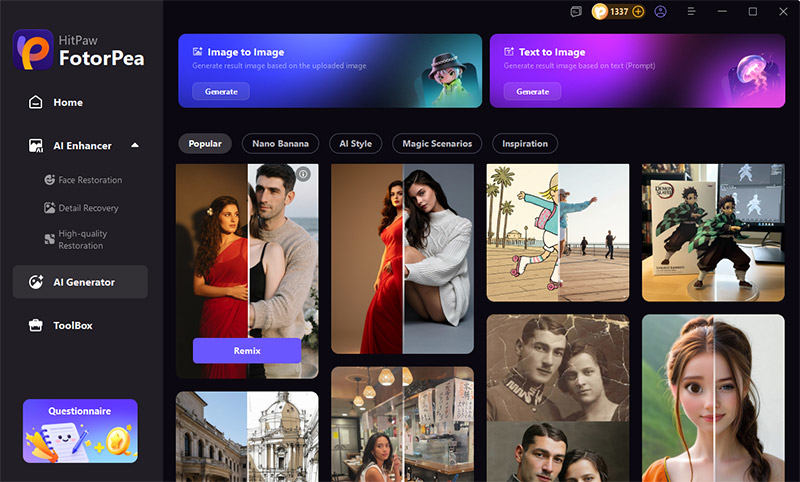
Step 2: Upload Your Line Art
Open the template for 3D model and click the “Upload” button. Select your lined image (JPG/PNG) from your computer and wait for it to load into the workspace.
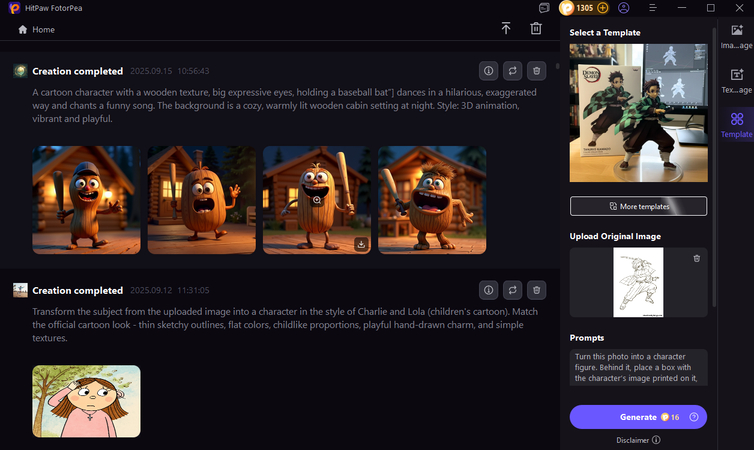
Step 3: Click on “Generate”
Click “Generate” to see how your lined image looks as a 3D model.
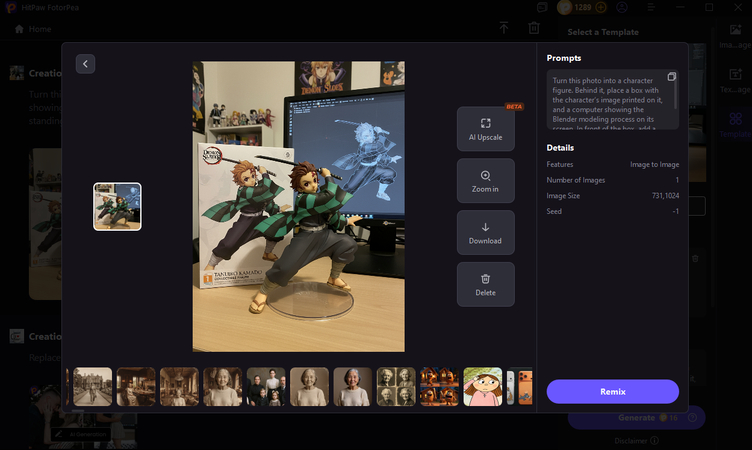
Step 4: Select “AI Upscaler” to Enhance
On the home screen, click the “Upscaler” button to begin the process of improving your 2D photo.
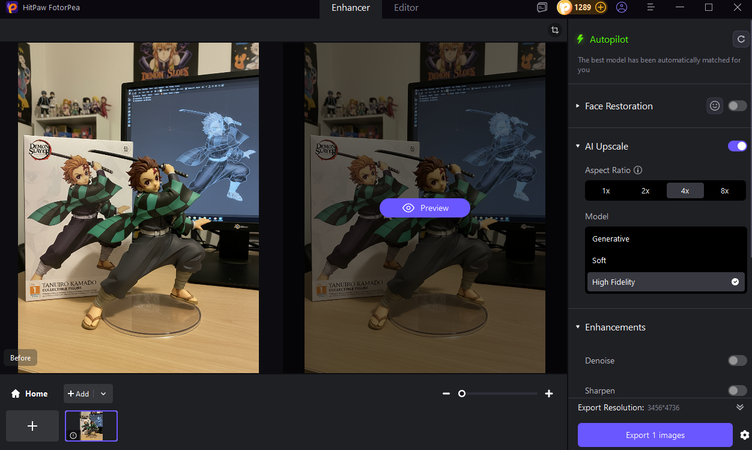
Step 5: Preview the Effect
Click on “Preview” and let the AI do its magic. The software will automatically enhance your 2D photo by fixing lighting issues, sharpening details, smoothing imperfections, and making the image look more vibrant and realistic.
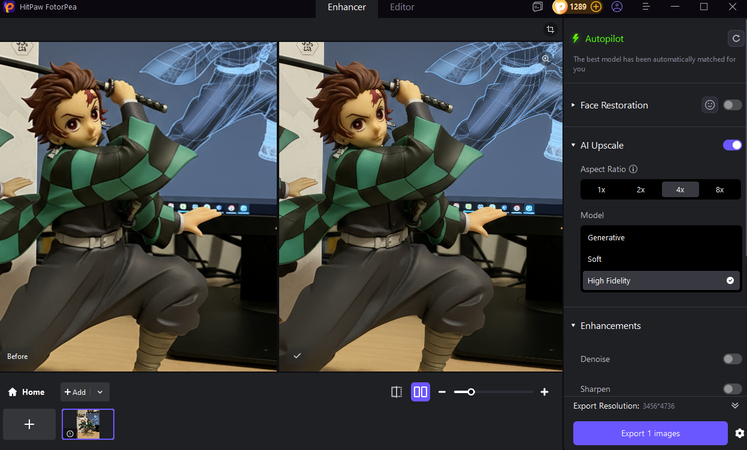
Step 6: Export the Enhanced 2D Photo
Once the AI finishes processing, you’ll see a side-by-side comparison of the original and the improved version. If you’re happy with the results, click “Export” to save your enhanced 2D photo to your device.
Part 5. FAQs about
If you want a free tool to turn lined images into a 3D model, Spline or Smoother-3D can be a great starting point. Both of these tools are highly efficient and easy to use. However, Blender is a better option for more advanced features.
Yes, but the quality depends on the clarity of your sketch. For best results, enhance the photo using HitPaw FotorPea before uploading it to a 3D model generator.
Conclusion
A few years ago, turning a flat sketch into a 3D model was considered a really difficult task. Only professional designers were able to do that. However, with the advent of technology, you can now easily convert a simple sketch into a 3D model, and the best thing is that you don’t require any graphic skills to perform that.
So, if you are wondering how to make my lined image a 3D model, use tools like Smoothie-3D, Spline, or Blender, and explore a whole new world of creativity. However, consider enhancing your models with HitPaw FotorPea, which refines textures and adds extra detail for even better results.
Leave a Comment
Create your review for HitPaw articles


